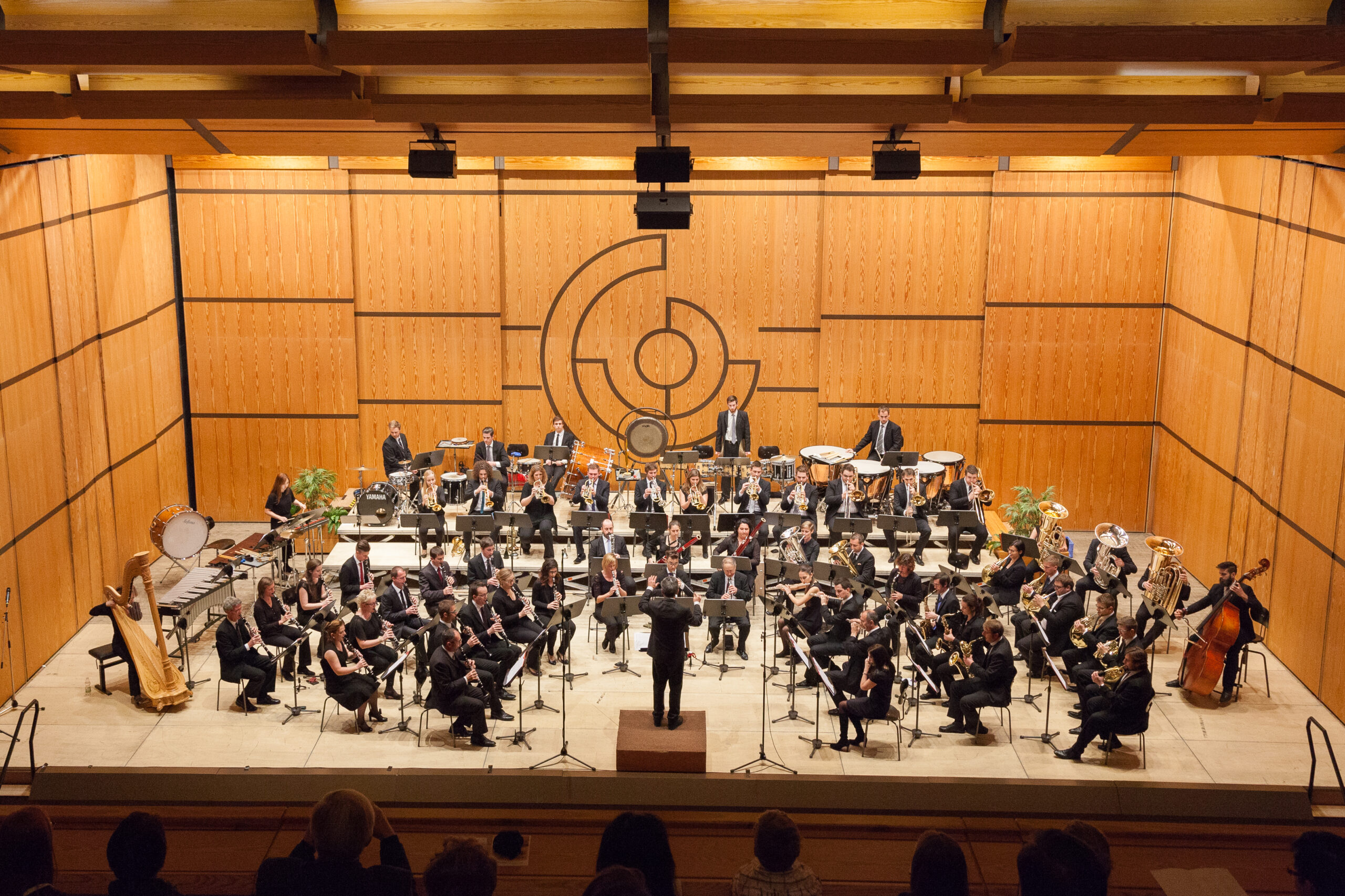About the orchestra

At the suggestion and with the help of the Pannonian Research Center, the Pannonian Wind Orchestra was founded in 1990 with graduates and students of the then Expository of the University of Music and Performing Arts Graz. The name refers to the original Roman province of Pannonia, which encompassed the area of today's Burgenland and western Hungary, from which the musicians mainly come and in which the members mainly work. This symphonic wind orchestra consists of about 40 to 50 musicians* and is led by Peter Forcher as permanent conductor. The orchestra is composed of professional musicians, music teachers and students.
The aim is to perform works and composers from the Pannonian region as well as international concert wind music. In the past 30 years, more than 500 musicians have participated in concerts, contemporary music projects and 17 CD recordings, making the work of the PBO possible.
The Pannonian Wind Orchestra is a select orchestra and carries out at least one or two projects per year. The activity includes concerts, festivals and recordings with numerous world premieres and avant-garde projects in various places in Austria, Germany, France, Hungary and Italy. It is worth mentioning the world premiere of John Cage Fifty Eight, at the Steirischer Herbst in Graz (1992), workshops with composers Vinko Globokar (1995) and Thomas Doss (2014, 2015, 2016), the opening concert of KiBu (Composers and Performers in Burgenland) in Oberschützen (1994), Festival KlangBogen in Vienna (1996), Jeunesse Festival with Perpetual Silence "Variations on No Theme by John Cage" (1999) or Symphony of Hope by Thomas Doss (2012). It should also be noted the collaboration with musicians and singers from Osman on Sahra Omania by Stuart Stirling, which was performed at the WASBE conference in Schladming in 1997. With contemporary projects and numerous concerts, the PBO makes a good contribution to contemporary wind music.
The repertoire initially consists of works by local composers such as Jenö Takács (Pannonian Rhapsody, Serenade based on Altgrazer Kontratänze, etc.), Franz Cilbulka (Eiszeit), Karl Messner (Rot-Gold Burgenländischer Festmarsch) and Hans Hausl (PBO Fanfare). Concert programs included traditional original works for wind orchestra such as Titanic by Stefan Jaeggi or Tirol 1809 by Sepp Tanzer and new works by internationally acclaimed composers such as Loch Ness and Lord of the Rings by Johann de Meij, First Suite and Second Suite by Alfred Reed, Poème Montagnard and Spartacus by Jan van der Roost, Gloriosa by Yasuhide Ito as well as the 1st Symphony by Mahler in the PBO Concerto. Symphony by Mahler in the arrangement by Désiré Dondeyne and Dvorak's 9th Symphony in the arrangement by Albert Meijns. Beginning in 2003, the orchestra devoted itself under the title "PBO Symphonic Project. New Sound Views into Familiar Works" to the performance of symphonies. From 2007 to 2011, in cooperation with the Pannonian Research Center, the six-part CD series "Europa Sinfonie" was recorded, featuring 13 symphonies originally composed for wind orchestra by European composers from the last two centuries. At the end of 2022, the CD "Wind Music by Jindřich Praveček" was recorded, rediscovering the repertoire of this Czech composer.
In addition to concert and recording activities, PBO collaborates with the University of Arts in Graz on certain musical projects. The symphonic wind orchestra represents a link between the students and the professional graduates. The orchestra has also taken conducting classes, as in the 1990s for the conducting course of the Burgenland Wind Music Association and since 2014 for the conducting class of Thomas Doss at the Conservatory of Bolzano. A final special feature of this wind orchestra is its connection with the international center for wind music research (Institute 12, Oberschützen of the University of Arts in Graz), which makes it possible to combine research, promotion and artistic practice.